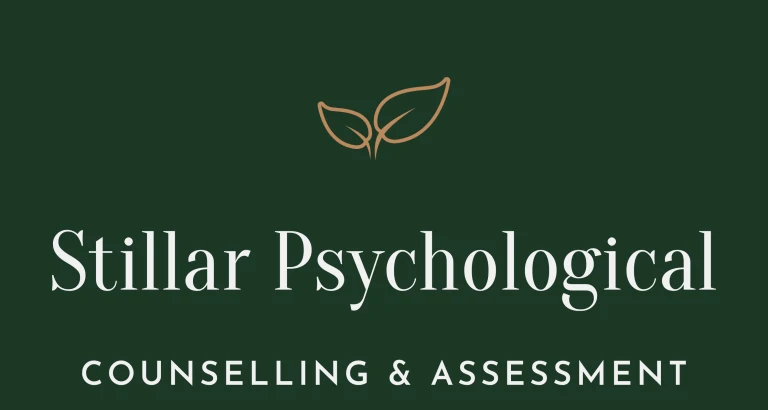At Stillar Psychological, we specialize in helping individuals overcome the challenges of Obsessive-Compulsive Disorder (OCD) through evidence-based treatments. One of the most effective methods we use is Exposure and Response Prevention (ERP) therapy. This article will look into how exposure therapy for OCD works, its benefits, and why it is a crucial tool in managing this condition.
OCD is a debilitating mental health disorder characterized by persistent, unwanted thoughts (obsessions) and repetitive behaviors (compulsions). These symptoms can significantly interfere with daily life, making it difficult for individuals to function normally. While OCD can manifest in various ways, the common thread is the overwhelming anxiety that drives compulsive actions. Traditional talk therapies often fall short in addressing the core issues of OCD, which is why ERP has become a cornerstone in the treatment of this condition.
ERP therapy stands out because it directly targets the root of OCD: the relationship between obsessions and compulsions. By confronting the fears and anxieties head-on, ERP helps individuals break the cycle of avoidance and compulsion that perpetuates their symptoms.
This method is grounded in scientific research and is highly effective in reducing the severity of OCD symptoms. At Stillar Psychological, we are committed to providing our clients with the best possible care. We utilize the latest research and techniques in ERP therapy to help them achieve lasting relief and a better quality of life.
Understanding Exposure Therapy for OCD
Exposure and Response Prevention (ERP) therapy is a specialized form of Cognitive Behavioral Therapy (CBT) made to help individuals with OCD. This therapy focuses on exposing patients to the thoughts, images, objects, and situations that trigger their anxiety and obsessions. Under the guidance of a trained therapist, patients learn to confront these triggers without resorting to compulsive behaviors. This thereby, reduces their anxiety over time.
ERP therapy is based on the concept of habituation, which means that repeated exposure to anxiety-provoking stimuli eventually leads to a decrease in the anxiety response. This process helps individuals with OCD to realize that their fears are not as threatening as they initially believed. By continuously facing their fears without engaging in compulsions, clients can retrain their brains to respond differently to these triggers.
Another critical aspect of ERP therapy is the personalized approach it offers. Each individual’s OCD is unique, with different triggers and compulsions. At Stillar Psychological, we adjust the ERP process to fit the specific needs of each client so that the therapy is as effective as possible. This customization is vital for addressing the diverse manifestations of OCD and providing targeted relief.
The Basics of Exposure and Response Prevention Therapy
ERP therapy is built on the principle of habituation, which is the natural reduction in anxiety that occurs when a person is repeatedly exposed to a feared stimulus without engaging in the usual avoidance or compulsive behaviors. This process helps retrain the brain to recognize that the feared stimulus is not a real threat.
During ERP sessions at Stillar Psychological, our therapists work closely with clients to create a customized plan for exposure. This plan involves gradually facing the triggers that cause anxiety, starting with less distressing situations and progressively moving towards more challenging ones. The response prevention aspect entails resisting the urge to perform compulsive behaviors in response to these triggers.
The gradual exposure approach allows clients to build confidence and resilience as they progress through their treatment. Starting with less distressing situations guarantees that clients do not become overwhelmed, which is important for maintaining engagement with the therapy. Over time, clients learn to manage their anxiety more effectively. This can lead to significant improvements in their daily lives.
In addition to building resilience, ERP therapy helps clients develop healthier coping mechanisms. By learning to face their fears without resorting to compulsions, clients can adopt more constructive ways of dealing with anxiety. This shift in coping strategies is essential for long-term recovery and helps prevent relapse.
The Role of the Therapist in ERP
A critical element of ERP therapy is the support and guidance provided by the therapist. Our therapists at Stillar Psychological are trained to help clients go through the difficult process of facing their fears. The therapist assists in developing a personalized exposure plan, coaches the client through exposures, and provides strategies for managing the anxiety that arises during these sessions.
Therapists also play an important role in helping clients understand the rationale behind ERP and reinforcing the importance of resisting compulsions. This professional support is vital in helping clients stick with the treatment plan, even when it becomes challenging.
Furthermore, the therapeutic relationship is a key component of successful ERP therapy. Trust between the client and therapist enables open communication and fosters a safe environment for confronting fears. This supportive relationship can significantly enhance the effectiveness of ERP by making sure that clients feel understood and supported throughout their treatment journey.
In addition to providing emotional support, therapists at Stillar Psychological use evidence-based techniques to monitor progress and make necessary adjustments to the exposure plan. This ongoing assessment makes sure that the therapy remains effective and adjusts well to the client’s changing needs to maximize the chances of successful outcomes.
The Process of ERP: Step by Step
The ERP process begins with a thorough assessment of the client’s OCD symptoms and triggers. At Stillar Psychological, we offer extensive assessments to identify the specific obsessions and compulsions each client experiences. This initial step is vital in creating an effective ERP plan.
Once the assessment is complete, the therapist and client collaborate to develop a hierarchy of fears. This hierarchy lists situations that trigger anxiety, ranked from least to most distressing. The client then begins exposure exercises, starting with the least distressing situations. Over time, they work their way up the hierarchy and face more challenging triggers as their anxiety decreases.
During exposures, the therapist provides continuous support to help the client confront their fears and resist compulsions. This process is repeated until the client can face their triggers without significant anxiety.
A critical aspect of the step-by-step process in ERP is the gradual increase in exposure difficulty. This method makes sure that clients build their tolerance to anxiety-inducing situations incrementally, preventing overwhelming feelings that could hinder progress. The systematic approach helps clients achieve small victories that accumulate into substantial improvements in managing their OCD symptoms.
Moreover, the step-by-step nature of ERP allows for flexibility and adjustment. Therapists can modify the exposure hierarchy based on the client’s progress and feedback so that the therapy remains dynamic and responsive to the client’s needs. This adaptability is critical for addressing any setbacks and maintaining the momentum of treatment.
Benefits of Exposure Therapy for OCD
Exposure therapy for OCD offers numerous benefits, including a significant reduction in anxiety and compulsive behaviors. By repeatedly facing their fears without engaging in compulsions, clients learn that their anxiety diminishes naturally over time. This reduction in anxiety leads to improved daily functioning and a better quality of life.
Another key benefit of ERP is that it empowers clients to manage their symptoms independently. Through therapy, clients develop coping strategies and learn techniques that they can use outside of sessions to handle anxiety-provoking situations. This empowerment is an essential step towards long-term recovery.
ERP also provides clients with a sense of mastery over their condition. Successfully confronting and managing their fears helps build self-confidence and resilience. This newfound confidence extends beyond managing OCD, positively impacting other areas of the client’s life and enhancing overall well-being.
Furthermore, ERP therapy helps break the cycle of avoidance and compulsive behaviors. By addressing the root cause of anxiety, clients can reduce their reliance on these behaviors and lead to a more balanced and fulfilling life. This shift is vital for achieving sustainable, long-term relief from OCD symptoms.
Challenges and Misconceptions About ERP
Despite its effectiveness, ERP therapy can be challenging. The process of facing one’s fears head-on is inherently difficult and can cause significant discomfort initially. However, with the support of a skilled therapist, clients can manage these challenges and achieve meaningful progress.
There are also several misconceptions about ERP therapy. Some individuals may believe that exposure to feared stimuli will increase their anxiety indefinitely. In reality, while anxiety does increase initially, it eventually decreases through the process of habituation. Understanding this concept is vital for clients to commit to the therapy.
Another common misconception is that ERP therapy is a quick fix. While ERP can lead to significant improvements, it requires time and dedication. Clients must be willing to engage in the process fully and consistently to achieve lasting results. Recognizing the commitment required can help set realistic expectations and build perseverance.
Additionally, some may fear that ERP therapy is too intense or overwhelming. However, the gradual, step-by-step approach makes sure that clients build their tolerance to anxiety over time to make the process manageable. This careful pacing, combined with the therapist’s support, helps clients overcome their fears in a structured and safe manner.
The Importance of Professional Guidance in ERP
Professional guidance is essential in ERP therapy to ensure that the process is conducted safely and effectively. Attempting to undertake exposure therapy without the support of a trained therapist can lead to increased anxiety and potential setbacks. At Stillar Psychological, our therapists provide the necessary expertise and support to manage the challenges of ERP.
Our therapists are trained to recognize and address any difficulties that may arise during the therapy process. This includes helping clients manage intense emotions, providing coping strategies, and adjusting the exposure plan as needed. This professional oversight is essential for maintaining progress and ensuring the therapy’s effectiveness.
Additionally, therapists can help clients address any underlying issues that may contribute to their OCD symptoms. This holistic approach makes sure that all aspects of the client’s condition are addressed so that it may lead to more inclusive and lasting relief from symptoms.
The Long-Term Impact of ERP Therapy
The benefits of ERP therapy extend beyond immediate symptom relief. By learning to manage their anxiety and resist compulsive behaviors, clients develop skills that can improve their overall quality of life. These skills are not only applicable to OCD but can also help clients manage other forms of anxiety and stress.
ERP therapy also promotes long-term resilience. Clients who complete ERP therapy are better equipped to handle future stressors and challenges. This increased resilience can lead to a more balanced and fulfilling life, free from the constraints of OCD.
Moreover, the confidence gained from overcoming OCD can have a positive ripple effect on other areas of life. Clients often find that their improved ability to manage anxiety enhances their relationships, work performance, and overall sense of well-being.
How ERP Fits into a Holistic Treatment Plan
While ERP is a highly effective treatment for OCD, it is often most effective when combined with other therapeutic approaches. At Stillar Psychological, we offer a range of services that can complement ERP therapy, including individual counseling, family therapy, and trauma-focused therapy. This broad approach makes certain that all aspects of the client’s well-being are addressed.
Combining ERP with other therapies can enhance treatment outcomes. For example, individual counseling can help clients explore and address any underlying emotional issues that may be contributing to their OCD symptoms. Family therapy can provide additional support and help improve communication and understanding within the family unit.
In addition to therapy, medication can also play a role in managing OCD symptoms. While our psychologists at Stillar Psychological are not qualified to prescribe medication, we can work closely with your primary care physician or psychiatrist to provide a coordinated and effective treatment plan.
The Path to Recovery
Exposure and Response Prevention therapy is a powerful tool in the treatment of OCD. By systematically facing and overcoming their fears, individuals can significantly reduce their anxiety and compulsive behaviors. At Stillar Psychological, we are dedicated to helping our clients harness the benefits of ERP to lead healthier, more fulfilling lives.
For those struggling with OCD, ERP therapy offers a path to recovery. With the guidance of a trained therapist and a commitment to the process, clients can retrain their brains to no longer see their obsessions as threats. This transformation is key to managing OCD and improving overall quality of life.
Why Choose Stillar Psychological for ERP Therapy
At Stillar Psychological, we are committed to providing the highest standard of care for individuals with OCD. Our team of experienced therapists who specialize in ERP and other evidence-based treatments guarantee that our clients receive the most effective therapy available. We understand the unique challenges faced by those with OCD and offer compassionate, client-centered care to support our clients on their journey to recovery.
For those interested in learning more about ERP therapy or scheduling an assessment, please visit our OCD treatment page or our Assessment Center. You can also book an appointment online to begin your journey towards managing OCD effectively.
At Stillar Psychological, we believe in a collaborative approach to treatment. Our therapists work closely with clients to ensure that they feel heard, understood, and supported throughout their therapy journey. This collaborative environment fosters trust and enhances the effectiveness of ERP, helping clients achieve their treatment goals.
Moreover, our commitment to staying up-to-date with the latest research and techniques in the field of psychology ensures that we provide the most current and effective treatments available. This dedication to excellence is at the core of our practice and underscores our mission to help clients lead healthier, more fulfilling lives.





















